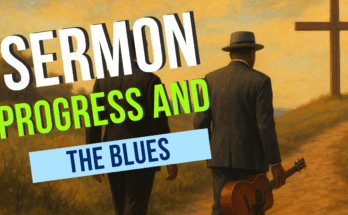As an Amazon Associate I earn from qualifying purchases.
Peter Mead at the Biblical Preaching website ponders what is missing from today’s preaching. He believes that what is largely missing from todays preaching is a knowledge of the Bible. I think this is true. Many of us do not have the knowledge of the Bible that is needed to make the Bible relevant to today’s world. However, I think there are other substantial things that are missing as well in much of contemporary preaching.
Substantial Critique of Social Customs and Structures
One thing that is missing is a substantial critique of the social customs of our own society. Much preaching today simply assumes that success in our particular society is God’s ideal. Because of this, we have a “prosperity Gospel” that makes the American dream the goal of the Gospel. We create sermons about how to be successful in this world and never critique the basic structures of this soceity. Many times when we do critique it we want to go back to supposed “glory days” of the past when we were allegedly in a “Christian nation” built on “Christian values.”
Reliance on the Spirit
Another component that is missing from much contemporary preaching is a reliance on the Holy Spirit. I teach a lot of technique and tools on this website, but ultimately if God is not behind the creation and the presentation of your sermon, then you preach it in vain. Many of us want to follow a few steps and then end up with a strong sermon. The simple fact of the matter is that sometimes you will follow the steps and the great product you seek does not follow. I think that techniques and tools are important, but reliance on the Spirit is of utmost importance.
Shallow and Trite
There is a shallowness in much preaching that I hear. The problem is presented in a shallow way. The solution in the Gospel is trite and simplistic. The preaching doesn’t hit home, I think, because the preacher doesn’t spend the time to actually live where the people live and then struggle with what the Spirit is trying to tell us in the Bible. Sometimes the Spirit tells us things that are hard to understand. We gloss over the difficulties, we gloss over the things that are hard. But when your back is against the wall, you need something that has been born in the crucible of pain and yet proven true. This comes partially from just not spending enough time with the sermon.
Copying Concepts
Finally, I think that there is a lot of copying today. I don’t necessarily mean copying sermons verbatim, although I think there is that too, but I think that there is a lot of borrowing stuff we hear on the TV or on the radio. We hear T. D. Jakes say something about a “Breakthrough” and then we preach a sermon “3 steps to a breakthrough.” Often we put in no thought as to what “breakthrough means in Jakes’ theology and whether it is appropriate at all in our own context or whether we even believe it. I have heard enough of preachers who have been called of God to preach a word taking 3-4 phrases from a popular media preacher and building a sermon around a trite and shallow amplification of those principles.
God Will Help You
Don’t get me wrong, there are some great preachers out there who are preaching the Word in season and out of season, but too many of us are simply followers of the winds of status quo. Let us take up the mantle, study our Bibles, critique our cultures, and plumb the depths of the problem before we throw a simplistic use of the Bible on it. God has called us to this, and God will help us in the endeavor.
Amazon and the Amazon logo are trademarks of Amazon.com, Inc, or its affiliates.






Great observations, Sherman. Our social structures and customs are not the same as when the biblical writers first penned the Bible. In a way, all preaching engages the culture because of the unique nature of the scriptures themselves. What principles would you encourage for engaging/critiquing your own culture in a sermon? What place does it hold in the sermon itself?
My reflection on your question is coming in an article that is soon to be posted.